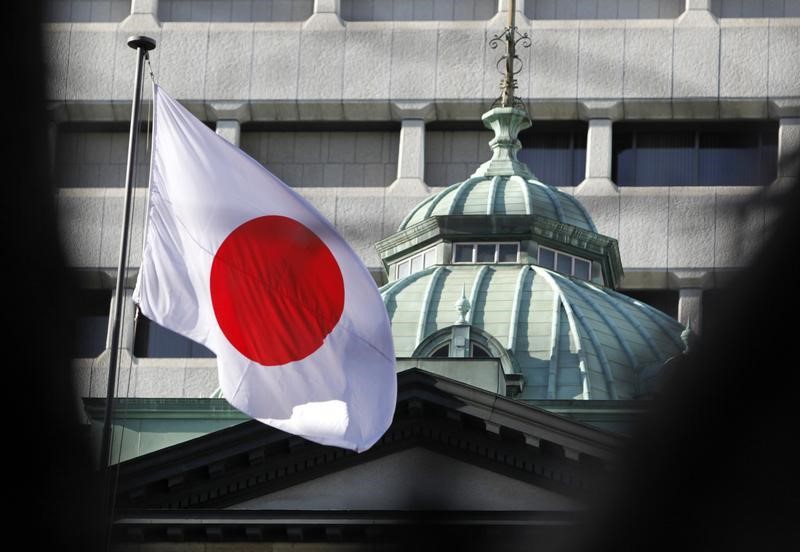Investing.com-- The Bank of Japan held interest rates at negative levels as widely expected on Friday, and said that it will continue with its current pace of asset purchases and yield curve control to stimulate the economy.
The BOJ left its short-term interest rates at negative 0.1%, and said it will continue with monetary easing in the near-term to improve wage growth and buoy inflation levels.
The bank said it will maintain its current pace of yield curve control (YCC) by allowing bond yields to fluctuate in a range of 0.5% to negative 0.5%. But the bank was also seen allowing more leeway to yields in recent months, letting them rise as far as 1%.
This came after the BOJ flagged a more loose approach to its YCC policy at its previous meeting, given that Japanese inflation and wages have increased steadily over the past year.
But the BOJ said that given the high uncertainty around the Japanese economy, especially amid slowdowns in its biggest trading partners, it will continue with monetary easing and aim to achieve its 2% annual inflation target.
Japanese 10-year bond yields slid nearly 2% after the BOJ announcement.
The BOJ’s move comes after Governor Kazuo Ueda recently said that the bank was considering a pivot away from its negative rate regime, following increases in wages and inflation.
But Ueda did not provide a timeline for when such a move will happen. A Reuters poll of economists showed that the BOJ is expected to maintain its negative rates for at least the remainder of 2023.
Data released earlier on Friday showed that Japanese consumer price index inflation grew more than expected in August, amid sustained consumer spending, rising oil prices and renewed depreciation in the yen.
The reading was also above the BOJ’s 2% target for a 17th consecutive month, while a core reading that excludes fresh food and fuel prices hit an over 40-year high.
The yen fell 0.3% after the BOJ decision, given that it presents no changes to the ultra-dovish policies that have battered the Japanese currency over the past year.
The yen was trading close to a 10-month low, also facing renewed pressure from the dollar after the U.S. Federal Reserve warned that interest rates will remain higher for longer.
